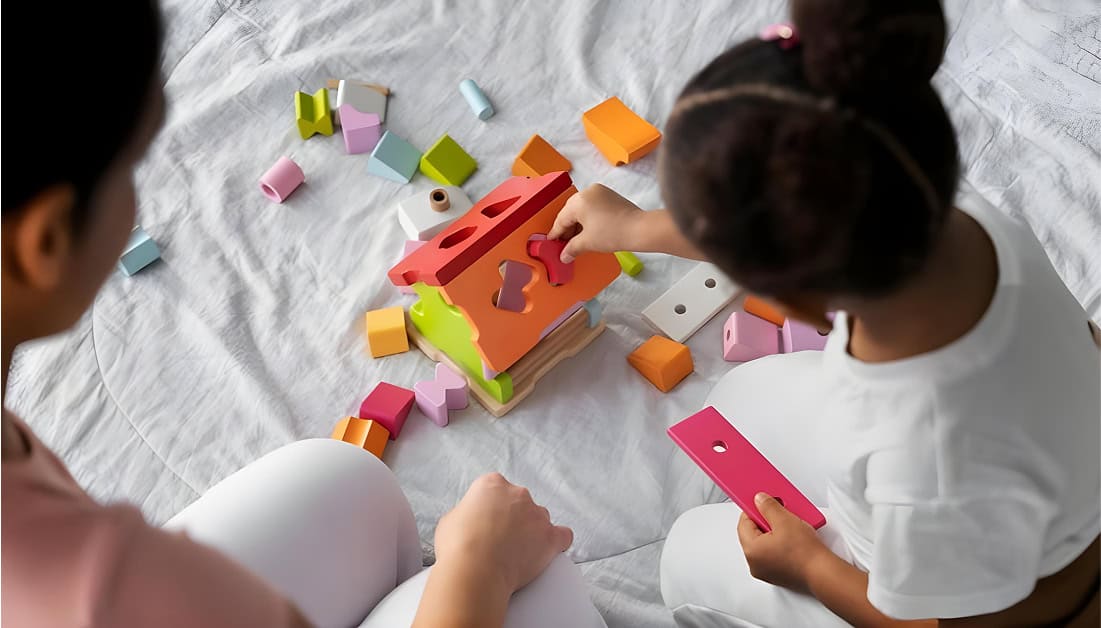
12 Jul Nurturing Independence in Preschoolers

Every parent dreams of seeing their child grow into a confident, capable and self-reliant individual. But how and when does this journey begin? Surprisingly, the foundation of independence is laid during the early years—well before a child learns to read or write. At Mainadevi Bajaj International Playschool (MBIP), we understand that developing independence is not just a milestone—it’s a mindset that we strive to nurture from the very beginning.
Why is Independence Crucial in Early Childhood?
Independence in preschoolers extends far beyond being able to wear their shoes or eat without help. It is about empowering children to take initiative, make choices, manage small responsibilities and build problem-solving skills. These qualities form the core of a resilient personality—essential not just for school but for life.
When children are encouraged to do things on their own, they begin to understand their abilities. They gain a sense of control over their environment, which boosts their confidence. They learn that they can influence outcomes through their actions, laying the foundation for a strong sense of self and emotional well-being.
The Playschool as a Crucial Partner in Developing Independence
While the home is a child’s first classroom, playschools serve as the first structured environment outside the family. This transition can be both exciting and intimidating for young children. At MBIP, we aim to make this experience smooth, safe and empowering. We recognize our role not just as educators, but as facilitators of self-growth.
Here’s how MBIP helps preschoolers grow into independent, confident individuals:
1. Structured yet Flexible Routines
Children thrive in routines—they provide a sense of security and predictability. At MBIP, our daily schedules are thoughtfully structured to allow children to manage transitions independently. Whether it’s arriving in the morning, organizing their belongings, or washing hands before meals, children gradually learn to anticipate and manage their own routines. These little steps go a long way in building time management and organizational skills.


2. Environment Designed for Autonomy
Our classrooms are set up with a child-centered approach. Materials are placed at child-accessible heights, allowing them to choose activities on their own. From puzzles and art supplies to books and building blocks—everything is within their reach. The physical setup of our school empowers children to explore, create and play with freedom of choice which in turn nurtures independence while also supporting cognitive and emotional growth.
3. Encouragement of Self-Help Skills
At MBIP, we prioritize the development of self-help skills. These include dressing themselves, using the washroom, eating independently and cleaning up after activities. Teachers guide and model these actions initially, but gradually reduce assistance, allowing children to take ownership of their tasks. These daily life skills instil a strong sense of responsibility and prepare them for formal schooling and beyond.


4. Building Decision-Making Confidence
Independence also means learning to make decisions—however small they may seem. We give children ample opportunities to choose: which activity to engage in during free play, which book to read during story time, or even what colour to use in an art project. These choices may seem minor to adults, but to a child, they are affirmations of their thoughts and preferences. Respecting their choices reinforces the idea that their opinions matter.
5. Guided Freedom with Responsibility
Freedom without boundaries can be overwhelming, even for adults. At MBIP, we ensure that independence is always coupled with a sense of responsibility. We introduce simple rules and logical consequences to help children understand the results of their actions. For example, if they don’t put away toys after play, they may not be able to find them later. This helps develop accountability in a gentle, age-appropriate way.


6. Supportive and Observant Educators
Our educators at MBIP are trained to observe, not interfere unnecessarily. While we provide guidance and encouragement, we avoid rushing in to solve every problem for the child. Whether it’s figuring out how to stack blocks higher or resolving a peer conflict, we allow children to try on their own first. This approach helps build resilience and problem-solving skills. We are always present as a safety net—but not as crutches.
7. Celebrating Every Little Achievement
Whether a child manages to open their snack box independently or confidently answers a question during circle time, every achievement is acknowledged and celebrated. At MBIP, we believe in the power of positive reinforcement. Recognizing and appreciating their efforts boosts self-esteem and motivates them to keep trying.


8. Partnering with Parents for Consistency
The journey toward independence cannot be limited to the school environment. We actively involve parents by sharing tips, updates and progress reports. We encourage parents to give children responsibilities at home—like setting the table, choosing their clothes, or putting toys away. When children experience consistent expectations at home and school, their growth accelerates naturally.
The journey toward independence cannot be limited to the school environment. We actively involve parents by sharing tips, updates and progress reports. We encourage parents to give children responsibilities at home—like setting the table, choosing their clothes, or putting toys away. When children experience consistent expectations at home and school, their growth accelerates naturally.
By fostering independence through gentle guidance, structured environments and a strong partnership with parents, MBIP ensures that children take their first steps not just into school, but into life—with curiosity, courage and confidence.



Sorry, the comment form is closed at this time.